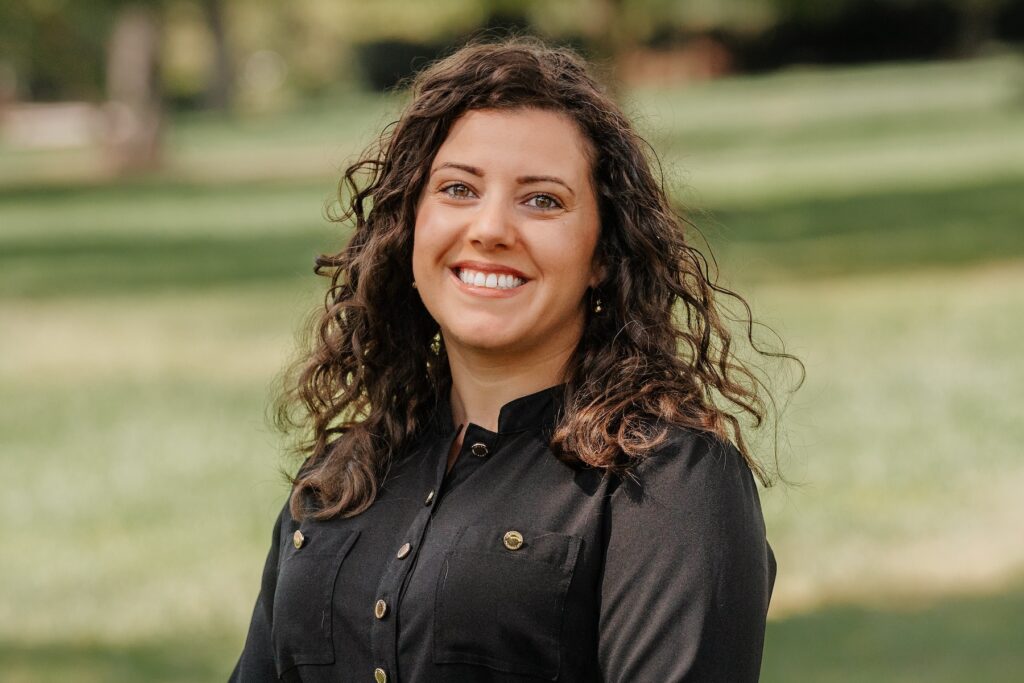“Both of my parents are musical. My mom is highly creative musically. She would make up music as far as I can remember. She can to this day make up songs on the spot with lyrics and everything. It’s amazing. My dad plays the guitar, piano and accordion—he would whip those out from time to time. We always had music playing in the household,” she said. “I don’t know if they necessarily wanted me to be a music teacher, but when that was something I pursued, they supported it because they supported the arts.”
Growing up in a small town in Upstate New York, Dr. Allan immersed herself in music through piano lessons, playing in her school band and singing in choir.
“I was the substitute pipe organist in my town and I was in musicals and marching band,” she recalls. “I wasn’t sure if I wanted to do music teaching or performance, but then God opened the doors. I believe that music education and research is what He wants me to do.”
Dr. Allan, who is entering her third year on the Anderson University faculty, desires to help current and future music educators effectively teach students of all ages and abilities.
Dr. Allan is an elementary specialist who has taught music to children of varied abilities in both public and private school settings, including at a school for children with sensory processing disorders and an autism center. She has done extensive research on teaching children with diverse abilities and music teacher preparation for the inclusion of these students.
Dr. Allan has also directed award-winning elementary choirs and has given private piano lessons to people of all ages and abilities.
To students in the Master of Music in Music Education degree program, Dr. Allan teaches courses for music education and research, music teaching and learning, psychology of music and current issues in music education. Additionally, she guides graduate students individually in their research projects to attain their degree.
To undergraduate students, Dr. Allan teaches an elementary music methods class, drawing from her experience and credentials as an elementary specialist.
Whether teaching both graduate and undergraduate students, Dr. Allan wants all her students to experience a personalized approach both online and in the classroom.
“With online students, since they are adults, they want that personal face-to-face because that’s what they’re used to. That’s how they grew up, like me,” she said. “I’m always open to meeting via Zoom because some of them are across the country. We try to meet as often as needed.”
“Dr. Amalia Allan is an accomplished, dedicated, superb member of the Master of Music in Music Education faculty,” said Dr. David Perry, director of the Department of Music. “Dr. Allan is a passionate researcher whose research focuses on teaching music to people with diverse abilities, multiculturalism in music education, and music teacher preparation for inclusion.”
Details about the Master of Music in Music Education course from the South Carolina School of the Arts at Anderson University can be found online here.

